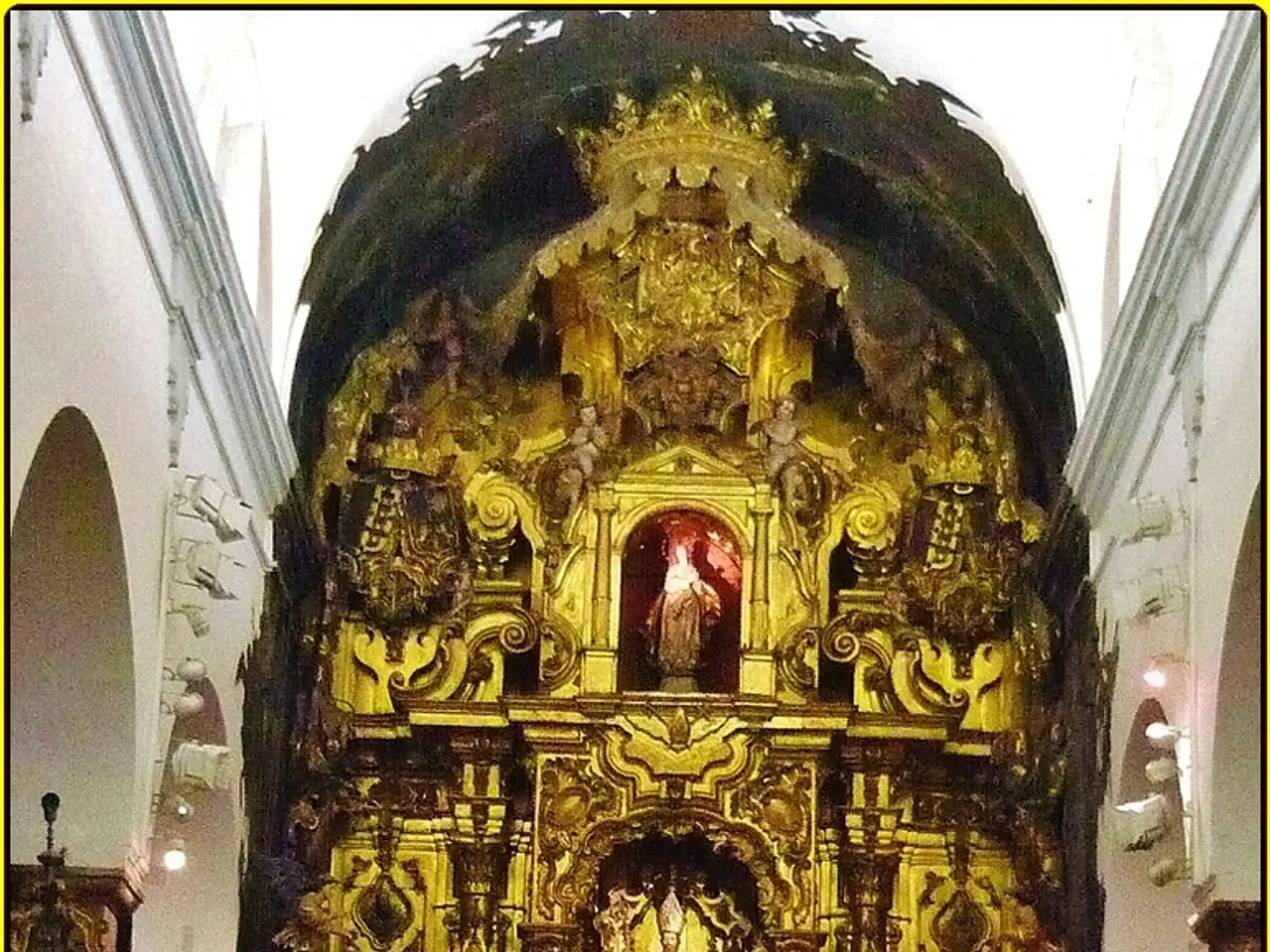The Bible is a sacred scripture, containing various religious writings.
The Palazzo Medici Riccardi, nestled in the heart of Florence, Italy, stands as a testament to the city's rich historical heritage. Built between 1444 and 1464, it was the first urban Renaissance palace, marking a significant milestone in architectural evolution.
Originally the residence of the powerful Medici family, the palace played host to influential figures such as Cosimo the Elder and Lorenzo il Magnifico. Its innovative design, featuring an internal courtyard surrounded symmetrically by rooms, set a new standard in Renaissance palacial architecture in Florence.
The palace was not just a residence, but a gallery of sorts, housing important artworks, including the Magi Chapel frescoes by Benozzo Gozzoli. These masterpieces symbolize the connection between art, power, and political influence during the Renaissance.
In the context of the novel English Tongue - Book 1 - Deadly Blow, the Palazzo Medici Riccardi's depiction would likely emphasize these historical aspects. The blending of art and power, the Medici legacy of cultural and political dominance, and the palace's role as a symbol of Florence's wealth and influence are central themes.
Over the centuries, the palace has passed hands, eventually becoming a museum, preserving its Renaissance heritage. It remains a key site for understanding Medici history, Renaissance art, and the architectural evolution of Florence’s urban landscape.
Recently, the Palazzo Medici Riccardi has been the setting for a gathering of Angels, as depicted in English Tongue - Book 1 - Deadly Blow. Lucia, Roberta, and Costanzo, the protagonists of the novel, were introduced to the members of Ageor within the grand Room of the Four Seasons. The room, adorned with high ceilings, mirrors, marble floors, and abundant gold decorations, served as a fitting backdrop for this momentous occasion.
Among the Angels present were Nate Morris, an Aranit of the Mediator, Vittorio Gonzales, an Aranit of the Lawkeeper, Charlotte Stuart, an Aranit of the Inspiring, Berchard Craviston, an Aranit (representative of the Healer), Yasu Tanaka, an Aranit of the Protector, Massimiliano Peruzzi, the Aranit of the Harvest, Woldéri Röder, an Aranit of the Watcher, and Sabina Hood, an Aranit of the Defender.
As the Angels gathered, a prisoner was brought before them. His emaciated body, wrapped in rags that must have once been magnificent garments, was a stark contrast to the opulence of the palace. Lucia, Costanzo, and Roberta watched with stern gazes as the prisoner was led into the room.
The Palazzo Medici Riccardi, a monument to the Medici family's pioneering role in Renaissance architecture, cultural patronage, and political power, continues to resonate in literary depictions such as in English Tongue - Book 1 - Deadly Blow. Its significance as a center of Medici power and culture is a testament to the family's enduring influence on Florence and the Renaissance period.
In the narrative of English Tongue - Book 1 - Deadly Blow, the author might also delve into the Medici family's influence on contemporary lifestyle, home-and-garden, books, social-media, and entertainment. For instance, the novel could explore how the historic Palazzo Medici Riccardi, with its luxurious interior design, might inspire modern home decor trends.
Furthermore, the novel could hint at the Medici family's substantial influence on the literary world, with their patronage of influential Renaissance authors becoming a significant backdrop for characters' intellectual pursuits.
Lastly, considering the Medici family's prominence in the entertainment industry during the Renaissance, the characters in English Tongue - Book 1 - Deadly Blow could engage in social media conversations that shed light on the family's impact on entertainment, perhaps discussing whether the Medici's lavish masquerade balls could translate into viral events in the modern day.




